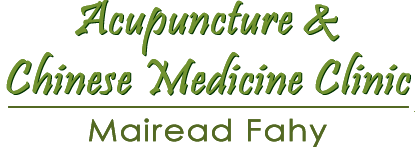Tongue diagnosis in Acupuncture
When you visit an Acupuncturist for the first time, you will go through a huge amount of questions involving diet, stress factors, lifestyle choices, past medical history, etc, but one of the most astonishing things you will be asked to do is….stick out your tongue!
I wish I could record the expressions of amazement and puzzlement on the faces of people when I ask them to do this! Im frequently asked “why”? And then “what does that tell you”?
The answer is everything! The tongue in Chinese Medicine is one of the most important diagnostic tools we use. It can tell us everything about your state of health and indeed what organs of the body may be out of balance and requiring attention.
The root of the tongue corresponds to the kidneys, the middle of the tongue relates to Spleen and Stomach (digestion), the tip of the tongue indicates the Heart and Lung organs, and the sides give an idea of the state of the Liver and Gallbladder.
Here are some of the things we look for :
Colour. A normal / healthy tongue body has a pale red / pink colour with a slight coating.
Red Tongue: This indicates Heat either excess or deficiency depending on the coating or absence of coating. Heat can come from Stress or Emotional problems and can result in Insomnia, IBS, etc.
Purple body. This can indicate Blood stasis, which is often a factor in Dysmennorhoea or Endometriosis and can manifest in severe Pain. A Bluish Purple body may indicate retention of Cold especially in the Uterus leading to another manifestation of Dysmenhorrea or Endometriosis. Application of Heat both externally and internally would be appropriate here in your Acupuncture treatment wheras in the Purple tongue body, movement of Stagnation/ Stasis and reduction of Heat is more appropriate.
Red tip. The tip of the tongue corresponds to the Heart, and the area just behind this relates to the Lung area. A red tip with a normal coating otherwise may indicate anxiety, insomnia, palpitations etc. A red Lung area may show symptoms of cold or flu, and may indicate Asthma or cough.
Red sides of the tongue. The sides correspond to the Liver and Gallbladder area in Chinese Medicine. These organs are mostly the organs which become unbalanced when the body is experiencing stress giving rise to a condition called Liver Qi Stagnation in TCM terms. Sometimes there may also be engorged blood vessels under the tongue with this condition also.Symptoms of Liver Qi Stagnation are irritability, migraine, insomnia, IBS, belching, headaches, hypochondrial pain, dysmennhorea, agitation.
Teeth marks. Teeth marks along the side of the tongue indicate a condition called Spleen Qi Deficiency. Most people in our modern world suffer some form of Spleen Qi Deficiency without experiencing ill effects. In general the symptoms of Spleen Qi Deficiency are tiredness, lassitude, loose stool, bloating, sometimes nausea and vomiting.
Coating. A healthy tongue has a light white coating. If this coating is absent, the underlying tongue is usually red, which will be very evident. A red tongue with little or no coating indicates something called Yin deficiency or Deficiency Heat. Deficiency Heat or Yin Deficiency is a symptom in Menopausal women, and will result in Irritability, Night sweats, feeling agitated, Insomnia, restlessness, palpitations etc.This condition definitely requires attention to diet and lifestyle to improve quality of life. Chinese Herbs work very well here to improve symptoms and regulate the body.
Thick white coating. This is usually indicative of Damp retention in the interior, and will give rise to symptoms of Bloating, maybe loose stool, Sluggish digestion, feeling tired and lethargic.
Yellow Coating. This again is Damp retention but it has now combined with Heat. This will give rise to symptoms of Heat, sweating, Pains in muscles or joints, perhaps constipation, maybe Migraine, certainly irritability and agitation.
Tongue thickness. A thick flabby tongue which is also very wet indicates excessive Damp in the interior and possibly Yang deficiency, causing mostly Digestive issues and tiredness, with a general lack of motivation.
A short thin tongue indicates Blood and Qi deficiency which can have all sorts of implications for Menstrual symptoms like Amennhorea, constipation, short menstrual cycle, tiredness, insomnia, arthritic pain etc.
And we can see all of that in the space of less than a minute! There are other things we look for also, but the above are the most important,and mostly co-incide with the verbal history given by the patient.
So when an Acupuncturist asks you to stick out your tongue, its not rude if you do! Its essential for the conversation of diagnosis and treatment.


